Net Hero Podcast – With Sumit Bose
Each week our founder Sumit Bose speaks to a net zero hero, someone or some organisation doing something to make our planet better. Listen in and subscribe to the podcast and even better, take part – tell the world what you are doing to make that difference, big or small, we will give you a voice. For any enquiries, please contact: nethero@futurenetzero.com
Episodes
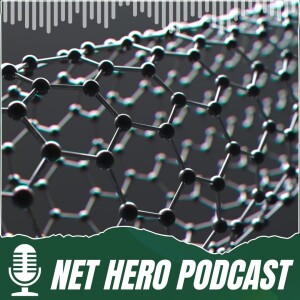
Wednesday Mar 26, 2025
Wednesday Mar 26, 2025
In this episode Sumit speaks to a Swedish scientist using graphene to boost the green hydrogen revolution
To read full article, Click Here.
For any enquiries, please contact: nethero@futurenetzero.com
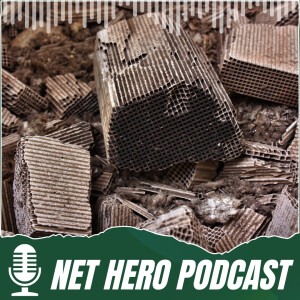
Wednesday Mar 19, 2025
Wednesday Mar 19, 2025
They were our first stab at cleaning up emissions and they became rich pickings for thieves...catalytic convertors. You probably have one if you have a petrol or diesel motor.
They sit ahead of your exhaust and are made of a mix of precious metals like platinum and palladium. Now one company in Canada is doing it's best to recycle all the good stuff so we don't have to mine it again.I spoke to Don Weatherbee CEO of Regenx Tech about how this could be a way to help us protect resources.
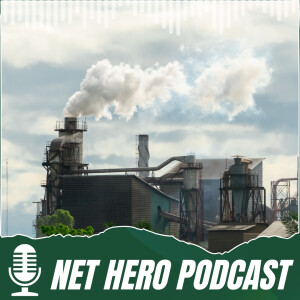
Wednesday Mar 12, 2025
Wednesday Mar 12, 2025
I will put my cards out there I think carbon capture or CCUS as it’s called – the U is utilisation and the S storage – is a vital part of the net zero path. Others disagree – many others. It’s said to be too expensive, unproven and worst of all a licence to keep burning fossil fuels.
This episode I chatted to Olivia Powis the boss of the CCUS association representing companies working to bring this tech to the party. So what’s her view on the role of CCUS right now?
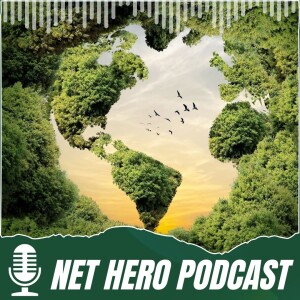
Wednesday Mar 05, 2025
Wednesday Mar 05, 2025
🌿 Net Hero Podcast – How Green is Your Windfarm? 🌬️⚡
Windfarms generate clean energy, but their construction impacts nature. How do we balance renewable power with protecting wildlife?
🎙️ Heather Lafferty, Ecologist at Statkraft, shares how her team ensures windfarms are built responsibly, minimising harm to birds, animals & habitats.
🔹 How windfarm sites are carefully assessed🔹 The conflict between ecology & business goals🔹 Why independent experts play a key role in decision-making
Are windfarms as green as we think? Listen now and read the article 👇
🔗 Podcast: https://fnz.energylivenews.com/2025/03/05/net-hero-podcat-how-green-is-your-windfarm/
#WindEnergy #Sustainability #NetZero #Renewables #WildlifeProtection #GreenEnergy

Thursday Feb 27, 2025
Thursday Feb 27, 2025
Take a fresh look at ways to help keep running costs down, increase efficiencies and cut carbon emissions in 2025
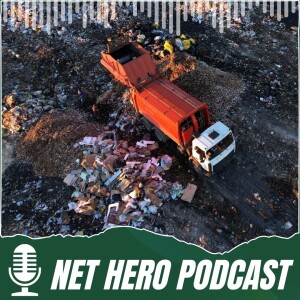
Wednesday Feb 26, 2025
Wednesday Feb 26, 2025
This episode we are talking waste, how it's dumped, treated and why it's actually not waste at all but valuable resources we should look after
Listen to the whole episode now and please subscribe too.
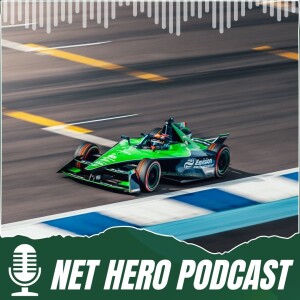
Wednesday Feb 19, 2025
Wednesday Feb 19, 2025
This week it's time to whizz around the track as I chat Formula E racing and what it will do for mass transport
Listen to the whole episode now and please subscribe too.
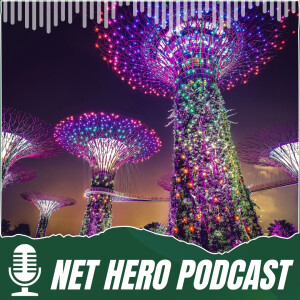
Wednesday Feb 12, 2025
Wednesday Feb 12, 2025
This week we go east to Singapore to see how one of the richest Asian nations is trying to clean up its fossil fuel economy
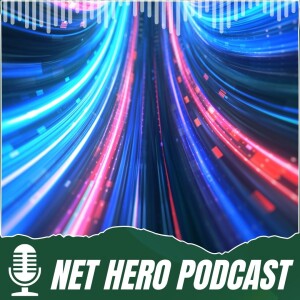
Wednesday Feb 05, 2025
Wednesday Feb 05, 2025
This week Sumit joined by Myrtle Dawes the CEO of the Net Zero Technology centre to chat growth
To read full article, Click Here.
For any enquiries, please contact: nethero@futurenetzero.com
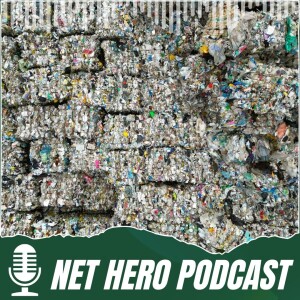
Wednesday Jan 29, 2025
Wednesday Jan 29, 2025
This week, how an old technology like Radar is helping a Norwegian tech start up clean up the waste sector
To read full article, Click Here.
For any enquiries, please contact: nethero@futurenetzero.com




